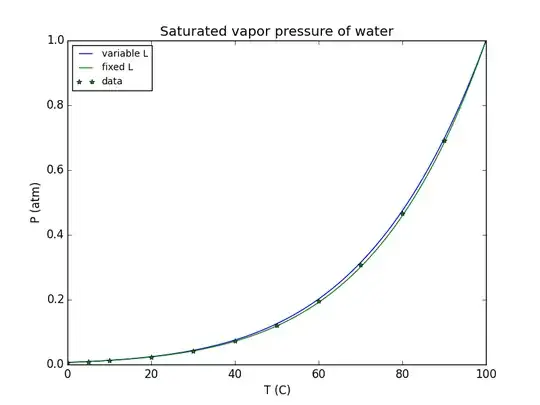Let's call it a small volume of water in a large volume of vacuum. And
let's say the vacuum is created instantly, and then the system is
sealed.
Once the air is removed, the water evaporates and becomes gas, so some of the pressure returns. There's an equilibrium of liquid water, vacuum, sealed container and temperature where some, or all of the water would evaporate. With a small amount of water and a large room, all of it would probably evaporate unless the temperature was close to freezing. To calculate how much you can look at the vapor pressure of water.

As water evaporates it cools, so some of the water would turn to ice in your scenario and the temperature in your container would drop some but if we assume the temperature remains above freezing, the ice would eventually all sublimate.
Video of water boiling, then freezing in a 60 degree F vacuum chamber.
When the air returns, what would happen depends on the initial humidity of the air and if the combined humidity of the boiled water and the initial water was over 100% relative humidity - called super-saturation. If it was low relative humidity to begin with, the water-vapor might remain below 100% relative humidity and remain in the air as invisible gas. If the relative humidity is over 100%, when the air returns, the water-vapor from the boiled water should condense out of the air back to water fairly quickly. Some could get absorbed in any absorbing material and it wouldn't necessarily return to the floor, it would condense on any surface including walls and ceiling. (like the drops on the wall and ceiling after a hot shower - which is a very similar principal of temporarily super-saturated air when the water from the shower is warmer than the air in the bathroom).
You might get some fog or mist in the air like a hot shower too, foggy mirrors for example. Related question on why showers have this effect.
Will the water instantly liquefy and fall back into a liquid pool if I
reintroduce air into the system?
Basically, if this is a large system, would I see a cloud form and
fall? Would this happen all at once or over time?
Instantly is a funny word in physics, but no, it wouldn't be instant. Water likes to stick to other water. It would take some time (but not a lot of time) for the water to recombine. I think it would happen fairly quickly but not "instantly". The trick with seeing it is that most of the water could condense on surfaces in tiny droplets. Observing how quickly they form would take some careful looking, but I think it would be fairly fast - a few seconds perhaps, but that's a guess. That's a good question on the timing that might need to be clarified or re-asked for a better answer.
Would it fall back into the pool? Probably not, especially with a relatively small amount of water to begin with - as noted above, you'd get drops on the walls, floor and ceiling.
Would you see a cloud form? Probably not. Clouds are mostly ice not water, and require updrafts and falling air pressure. A sudden increase in air pressure would be quite different. You might see some mist, but I don't think it would resemble a cloud and it would all happen fairly quickly. I'd guess over a couple seconds.
